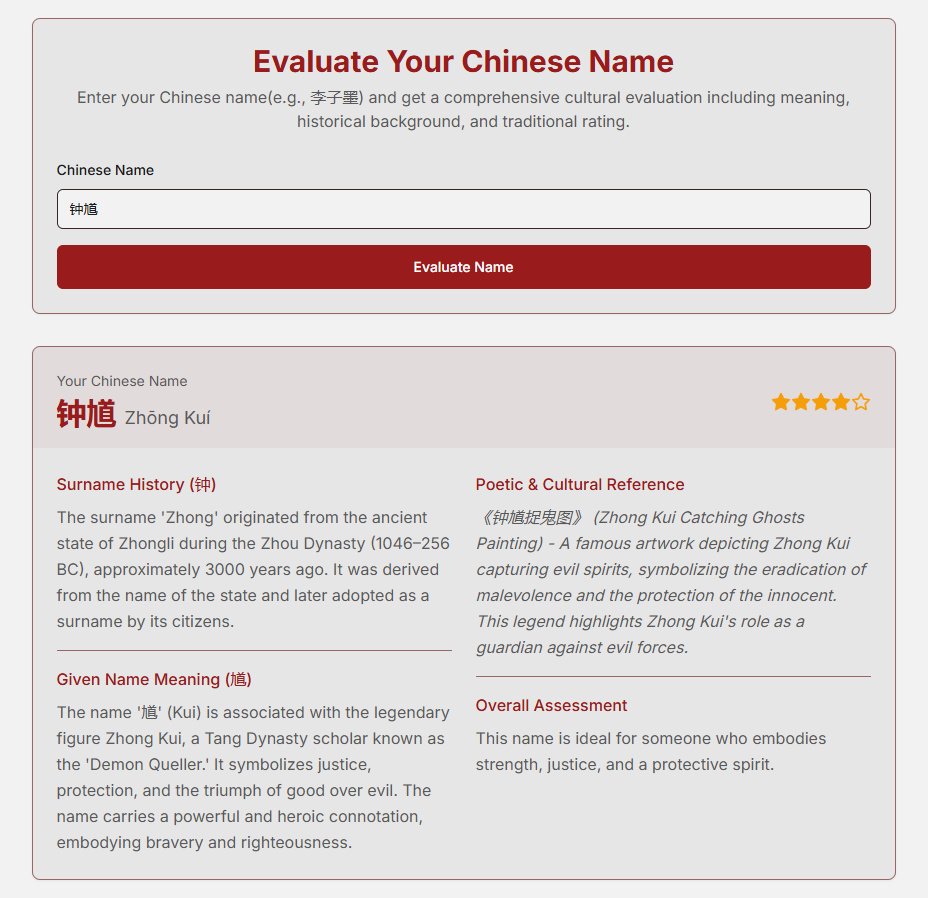- Blog
- 钟馗 Zhong Kui: The Demon Queller and the Cultural Meaning Behind His Name
钟馗 Zhong Kui: The Demon Queller and the Cultural Meaning Behind His Name
If you are familiar with Western legends, think of Zhong Kui (pronounced like “Jong Kway”) as the Chinese counterpart of Saint George or the Archangel Michael. He is a legendary figure in Chinese folklore, famous for vanquishing demons and protecting households. His story not only tells us about Chinese mythology but also reveals how names in China often carry deep cultural values.
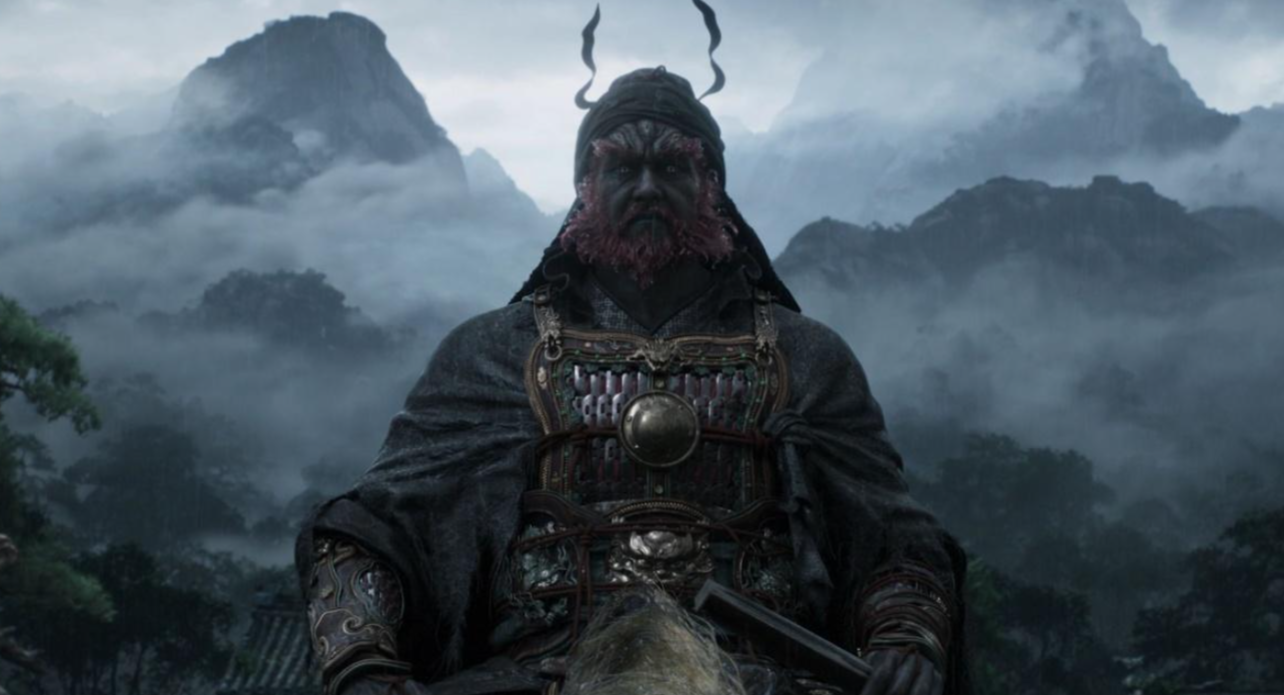
Who Was Zhong Kui?
According to tradition, Zhong Kui was a brilliant scholar during the Tang dynasty. Despite his outstanding talent, he was rejected in the imperial examination because of his unattractive appearance. Humiliated and filled with despair, he took his own life. Yet his story did not end there — in fact, it transformed him into one of the most enduring figures in Chinese folklore.
The Dream of Emperor Xuanzong
Legend has it that Emperor Xuanzong once fell ill and dreamed of mischievous demons tormenting him. Suddenly, a fierce figure appeared: a scholar in robes, wielding a sword, slaying the demons with ease. This figure introduced himself as Zhong Kui, the very man who had died unjustly. When the emperor awoke, his illness was gone. Amazed, he ordered artists to paint Zhong Kui’s portrait. From that time on, Zhong Kui became known as the Demon Queller, and his image spread across the land as a talisman of protection.
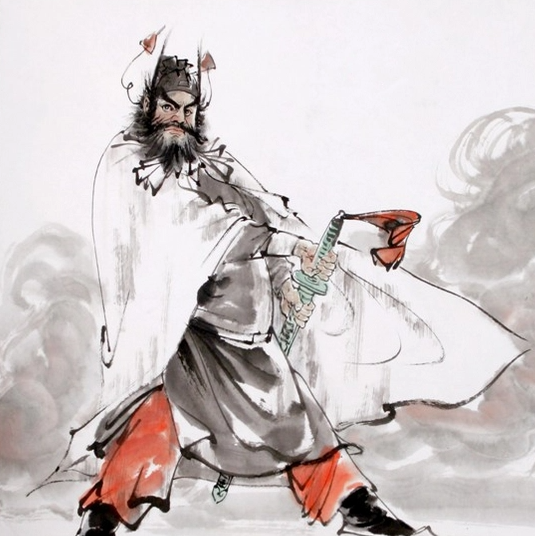
Zhong Kui in Chinese Culture
Since the Tang dynasty, Zhong Kui has been revered as a guardian deity. During traditional festivals like the Lunar New Year or Dragon Boat Festival, families often hang paintings of Zhong Kui on their doors to ward off evil spirits. This practice is similar to Western customs such as lighting Jack-o’-lanterns on Halloween or hanging wreaths at Christmas — symbols that provide comfort and a sense of protection against unseen forces.
The Meaning of His Name
The name “Zhong Kui” is not just a random label.
- Zhong (钟, sounds like “Jong”) means “to focus” or “to concentrate.”
- Kui (馗, sounds like “Kway”) means “a path” or “a direction.”
Together, the name can be understood as “staying focused on the righteous path.” It perfectly matches his role as a guardian who fights evil and protects the good. In Chinese culture, names are often chosen with such symbolic meanings, reflecting the hopes and values of families.
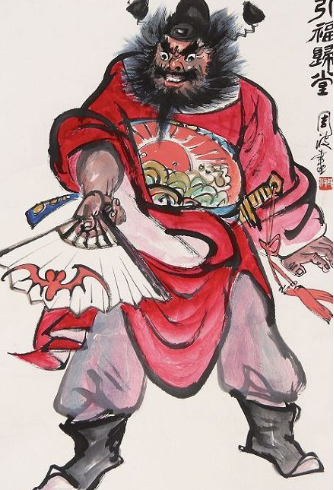
Comparing East and West
While Zhong Kui may sound exotic to foreigners, his role is not so different from Western heroes who protect against darkness. Just as Saint George slays dragons or Michael the Archangel defeats Satan, Zhong Kui defends people against demons. What makes the Chinese case unique is that this protective figure also became a part of naming culture and household tradition.
What Zhong Kui Teaches About Chinese Names
Chinese names are more than personal identifiers — they carry blessings, cultural beliefs, and even protective powers. Parents often select characters that symbolize peace, safety, or good fortune. Though few people today are named Zhong Kui, his story highlights the idea that a name can function like an amulet, embodying values and protection.
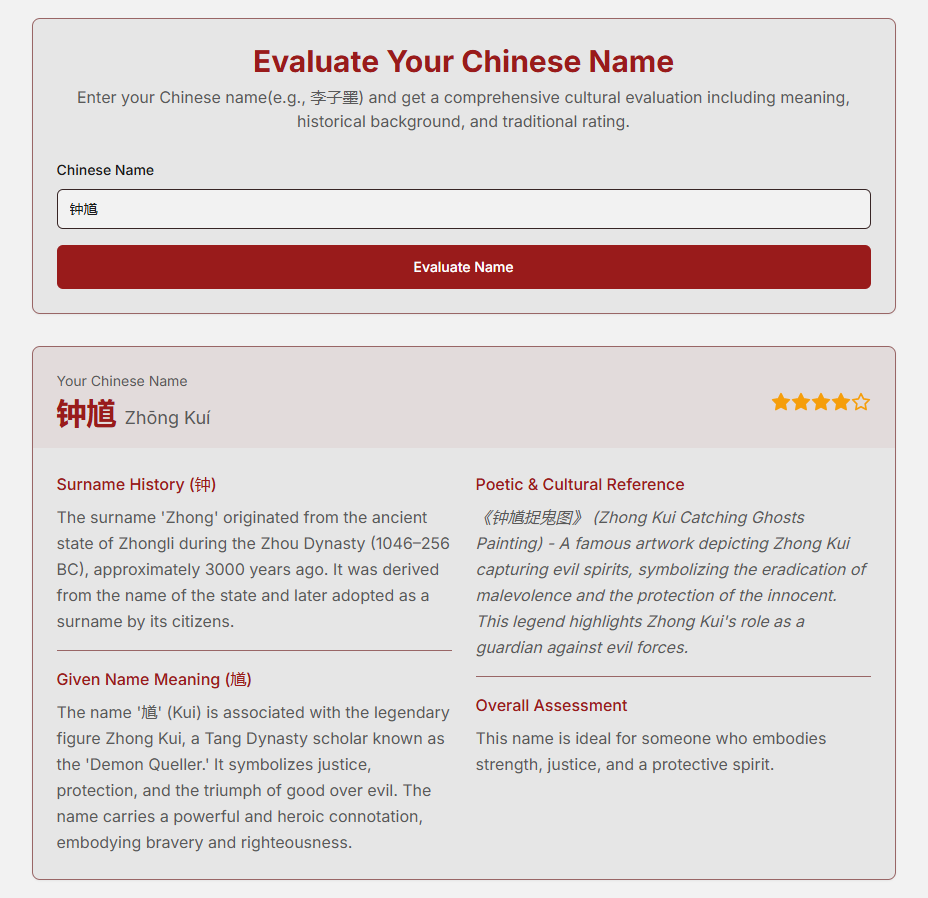
Conclusion
The legend of Zhong Kui is both a fascinating tale and a window into Chinese cultural beliefs. His name and story show us why Chinese people take naming so seriously: names can reflect values, carry blessings, and serve as symbols of protection.
👉 Want a Chinese name rich with cultural meaning? Try our Chinese Name Generator and discover your unique name today!
